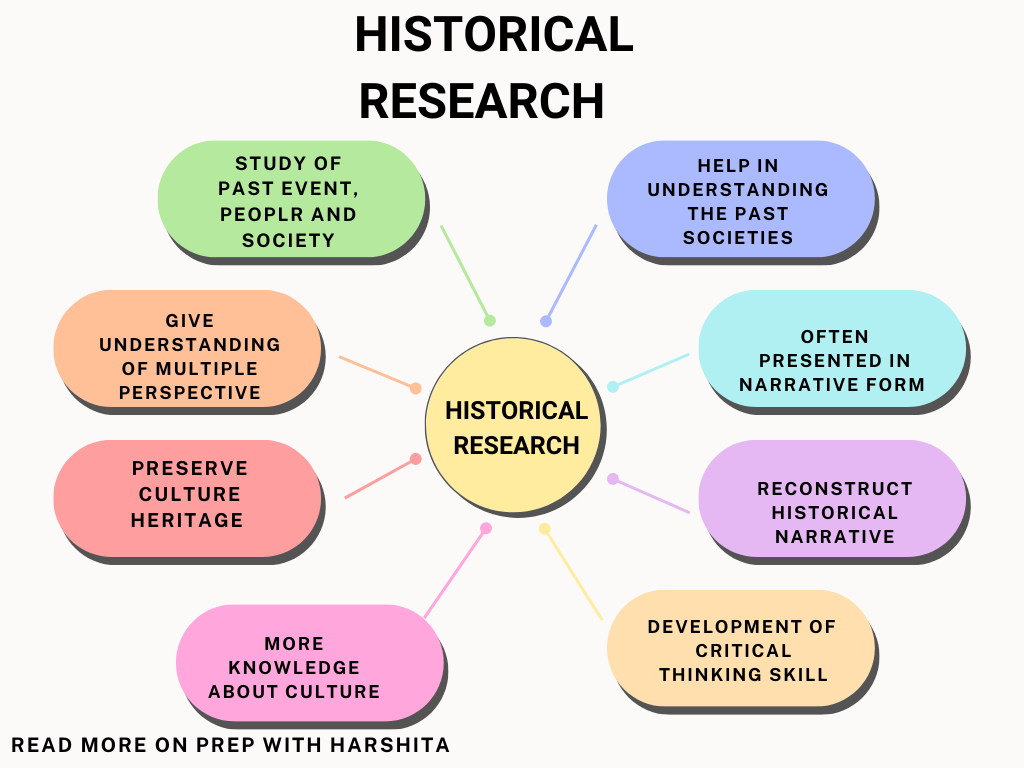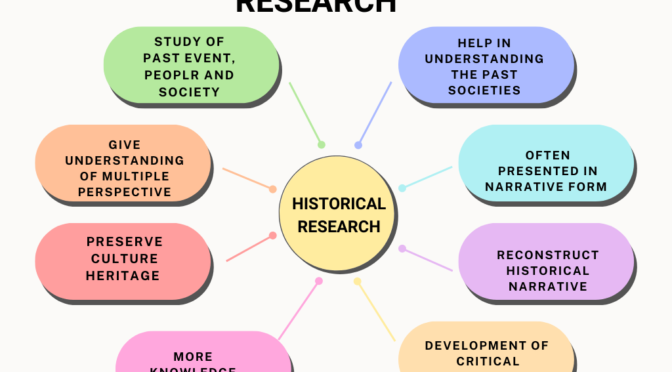Historical research is a type of research that involves the study of past events, people, and societies. It is a systematic and objective approach to the investigation and analysis of historical sources, including primary sources such as original documents, artifacts, and oral histories, as well as secondary sources such as scholarly publications, journals, and books.
The purpose of historical research is to uncover and interpret the meaning and significance of events, ideas, and social and cultural practices from the past. Historians use a variety of methods and techniques to conduct their research, including archival research, textual analysis, oral history interviews, and quantitative analysis.
Historical research is an interdisciplinary field, drawing on methods and insights from a variety of disciplines, including history, anthropology, sociology, cultural studies, and literary studies. It is an important tool for understanding the development of societies, cultures, and ideas over time, and for informing contemporary debates and policy decisions.
Features of Historical Research :
- Focus on the past: Historical research is concerned with events, people, and societies from the past. It seeks to uncover and understand the context and significance of past events and their impact on the present.
- Reliance on primary sources: Historical research relies heavily on primary sources, such as original documents, artifacts, and oral histories. These sources provide direct evidence of past events and can help to reconstruct historical narratives.
- Interpretation: It involves the interpretation of historical evidence. Historians must use their critical thinking and analytical skills to analyze and interpret historical sources and to draw conclusions.
- Contextualization: Historical research involves placing historical events and figures in their social, cultural, political, and economic context. This helps to provide a deeper understanding of the causes and consequences of historical events.
- Multiple perspectives: Historical research requires an understanding of multiple perspectives, including those of different social groups, cultures, and historical actors. This helps to avoid bias and to provide a more nuanced understanding of historical events.
- Narrative form: Historical research is often presented in narrative form, using storytelling techniques to convey historical events and their significance. This helps to make history more accessible and engaging for a wider audience.
Benefits of Historical Research :
Historical research has several benefits, including:
- Understanding the past: It helps us to understand the past and the context in which past events occurred. This can help us to understand the present and to inform decisions about the future.
- Preservation of cultural heritage: It plays a vital role in preserving cultural heritage. By uncovering and documenting historical events, people, and societies, we can ensure that important cultural knowledge is not lost.
- Development of critical thinking skills: It requires critical thinking and analytical skills. By engaging in it, individuals can develop these skills, which can be useful in many other areas of life.
- Informing policy decisions: It can inform policy decisions by providing insight into the historical context and impact of policies and events.
- Providing a sense of identity: It can provide individuals and communities with a sense of identity and belonging by uncovering and celebrating their shared cultural heritage.
- Fostering empathy: It can foster empathy by helping individuals to understand their experiences. It can help to understand the perspectives of people from different cultures and time periods.
Overall, it helps us to better understand ourselves and our world and can play an important role in shaping the future.
Also Read: Characteristics of a Good Research Tool



Private proxies and best rates: 50 discount, free proxies and special deals – just on DreamProxies.com